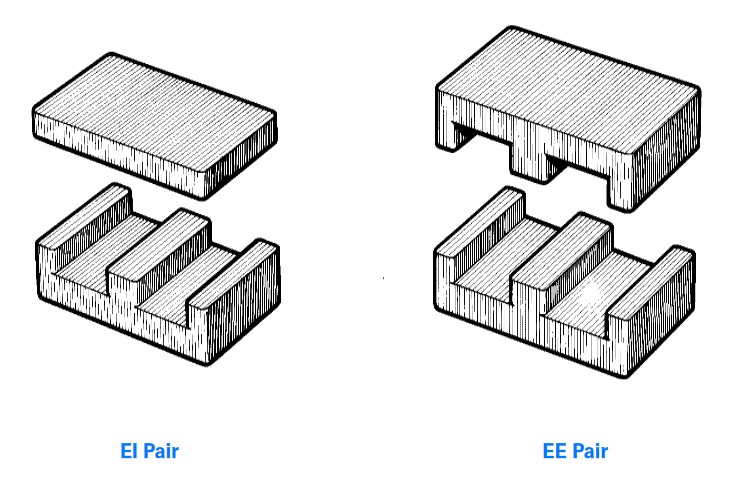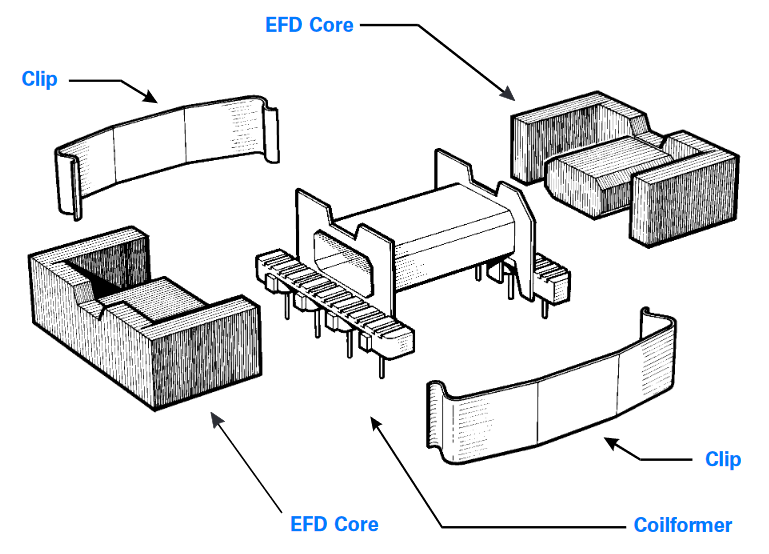Designing flyback transformers for custom SMPS power supply units can usually be the bulk of the design process. Determining the core size for an SMPS flyback transformer is the first step towards figuring out the winding diagram. Here is a ferrite core power capacity table that we often use as a quick reference table for picking ferrite cores.
The recommendation here is based on common materials and uses broad assumptions. Though the ferrite core power handling capacity will differ widely across manufacturers based on material and physical dimensions, this table acts as a good starting point.
Some assumptions:
- 5kHz – 200kHz switching frequency
- Double E shaped, wire wound transformer
- No or very small air gaps
Core Model vs Power
EE and EI Cores

| Core Model | Maximum Power | Switching Frequency |
| EE10 | 3 W | 5kHz – 200 kHz |
| EE13 | 5 W | 5kHz – 200 kHz |
| EE16 or EI16 | 6 W | 5kHz – 200 kHz |
| EE19 or EI19 | 8 W | 5kHz – 200 kHz |
| EE22 or EI22 | 10 W | 5kHz – 200 kHz |
| EE25 or EI25 | 16 W | 5kHz – 200 kHz |
| EE28 or EI28 | 22 W | 5kHz – 200 kHz |
| EE30 | 40 W | 5kHz – 200 kHz |
| EE40 | 100 W | 5kHz – 200 kHz |
The above power capacity table should cover your requirements for isolated flyback SMPS design in the range of 1 to 100W. For power output higher than 50W, PQ series cores are recommended over EE series cores. We will update this page soon with those cores listed as well.
EFD Cores

| Core Model | Maximum Power | Switching Frequency |
| EFD20 | 11 W | 5kHz – 200 kHz |
| EFD25 | 18 W | 5kHz – 200 kHz |
| EFD30 | 28 W | 5kHz – 200 kHz |
EFD cores are gaining popularity in low profile designs these days. If your application is not very high power and needs a low profile design, you may find the above table very useful.
Need help with low power SMPS design?
You can always reach out to us for help!
References
Reference 1: BetterFuse Cores
Reference 2: MMG Canada
Reference 3: CEC Coils